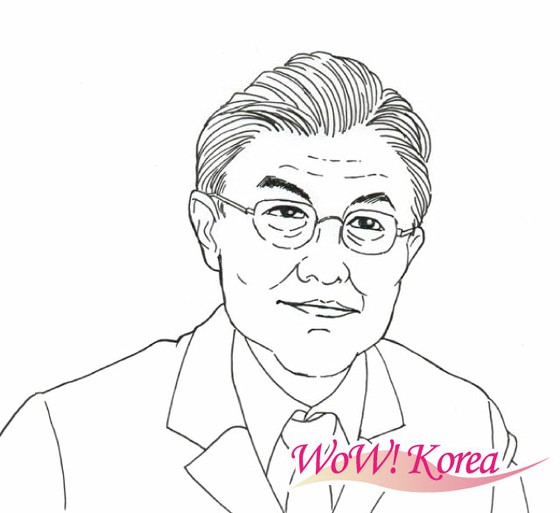 |
This expression is mainly used by Koreans (especially the left) when attacking Japan. However, the Korean side has never specifically shown what level of action the "genuine apology" mentioned here means.
For example, "the Japanese prime minister holds hands with the Korean 'victim' representative and bows his head." Is it the level of appearance and reading, or what is the level of concrete action that deserves to be accepted as a "genuine apology"?
Only by showing it to the Japanese side will the situation end in any way, whether the Japanese side considers this and responds to the apology according to the level desired by South Korea, or declares a refusal to the official. However, Koreans have always shouted "genuine apology" unconditionally for a long time.
When it comes to this area, the request for a "genuine apology" to Japan is not about trying to end the situation by really drawing an apology from Japan. To tell the truth, no matter how much Japan apologizes with all their heart, it is also possible to interpret that there is the intention of continuing the infinite repetition of the anti-Japanese offensive.
It is exactly the same as saying "clearing Japanophilia". Many people shout "Japanophilia liquidation" as much as they can, but there has never been a case of accurately showing what concrete actions Koreans should take for Japanophilia liquidation today in the 21st century.
The following is the emphasis on "Pro-Japanese liquidation" that appears in the commemorative speech by President Moon Jae-in on March 1st of each year (*the anniversary of the "Samil Movement" that took place under Japanese rule).
"Clearing the remnants of Japanophilia is homework that has been postponed for a very long time... 'Clearing Japanophilia' is the simplest value that Japanophilia should be reflected and the independence movement should be established correctly."
According to this, the Moon Jae-in administration stipulated that "Japanophilia liquidation" should be "correctly established the simplest value that it is a matter to reflect on and that the independence movement is an act that should be treated."
By the way, how many Koreans today do not recognize that Japanophilia in the former Japanese Empire era (*the era of Japanese Empire rule) should be reflected? All Koreans today are already well aware that "it (Japanophilia during the Japanese colonial era) is an act to reflect on."
In addition, all Koreans are already familiar with the independence movement, which is a natural act only after receiving courtesy. For this reason, among the many (five) national and national holidays in South Korea, there are holidays (March 1st, August 15th) that praise the independence movement with a large weight (40%). Each time, a grand commemorative event is held at the next pan-national former.
On public holidays praising the independence movement, all Korean media are enthusiastic about praising the independence movement without distinction between the left and right lines (in effect, it is an overkill level), how South Korea treats the independence movement today. It is one of the typical phenomena that shows you what you are doing.
In fact, calmly, South Korea's independence was entirely achieved by the power of the United States. It is undeniable that the independence movement at that time did not make a significant contribution to South Korea's independence. Given this reality, the kind of courtesy that the independence movement is receiving today is full (or rather excessive).
After all, if it is based on the "Japanophilia liquidation" stipulated by the Moon Jae-in administration, the appearance of South Korea today (reflection on Japanophilia during the Japanese Emperor era, generous courtesy for the independence movement) is already perfect for Japanophilia liquidation. It is easy to know that it is in a state of being fully achieved.
In today's South Korea in the 21st century, even though the settlement of Japanophilia against the Japanese Emperor has already been completed, the bizarre phenomenon of shouting "Japanophilia" like this is "concrete. It seems to be in line with the case of "genuine apology" that demands Japan without showing the standard.
In this respect, if the "genuine apology" is the external and overseas propaganda for attacking Japan, then the "pro-Japanese liquidation" contributed to the development of the internal heroes and the Republic of Korea. It seems to be the next former propaganda for domestic and domestic use to attack the right wing.
If the Moon Jae-in administration intends to continue to carry out "pro-Japanese liquidation," which is nothing more than an anachronistic propaganda, we will put together a concrete list (code of conduct) so that the people can properly perform pro-Japanese liquidation. Should definitely be shown to.
Something concrete, such as "remove all facilities such as Seoul Station and Gyeongui Line railway built during the Japanese Emperor era" or "find the descendants of the people who had been renamed Soshi-kaimei one by one and impose a fine". Only with a good code of conduct will Koreans today be able to enthusiastically embark on a pro-Japanese liquidation without confusion.
Therefore, the fact that the Moon Jae-in administration does not show a concrete guide (list) as it is now and only the word "pro-Japanese liquidation" is unilaterally brought to the fore is that "pro-Japanese liquidation" is actually an enemy of our eyes. It shows that it is nothing more than a propaganda mobilized after Asahi's former to despise the heroes who made the Republic of Korea today and the right-wing patriotism forces that exist as.
2021/10/21 21:26 KST


